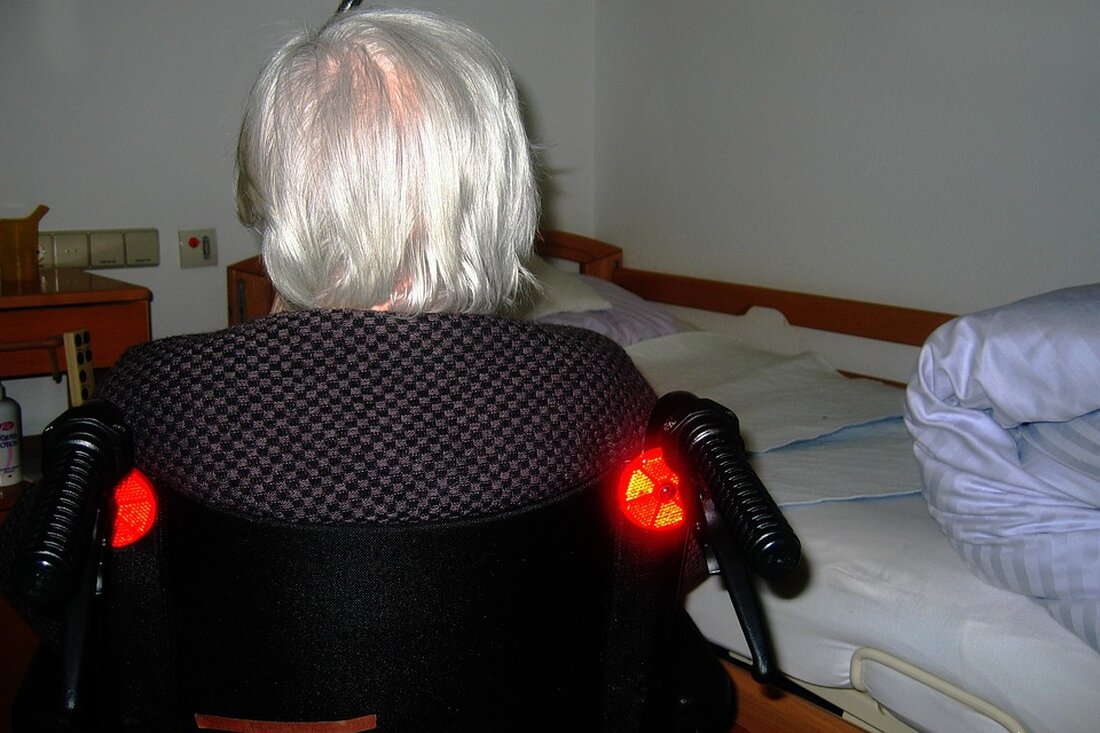What is the difference between Alzheimer's and dementia? All important facts at a glance
What is the difference between Alzheimer's and dementia? All important facts at a glance In today's society, Alzheimer's and dementia are widely used terms that are often used interchangeably. But there is a clear difference between the two. Dementia is an umbrella term for a variety of symptoms and diseases, while Alzheimer's is a specific type of dementia. In this article we would like to explain the differences between Alzheimer's and dementia in more detail and provide important facts. Dementia: causes, symptoms and types of the disease What is dementia? Dementia is a term that describes a reduction in mental abilities that support daily life...

What is the difference between Alzheimer's and dementia? All important facts at a glance
What is the difference between Alzheimer's and dementia? All important facts at a glance
In today's society, Alzheimer's and dementia are widely used terms that are often used interchangeably. But there is a clear difference between the two. Dementia is an umbrella term for a variety of symptoms and diseases, while Alzheimer's is a specific type of dementia. In this article we would like to explain the differences between Alzheimer's and dementia in more detail and provide important facts.
Dementia: causes, symptoms and types of the disease
What is Dementia?
Dementia is a term that describes a reduction in mental abilities that affects a person's daily life. It is a slowly progressive disease that mainly affects older people. The causes of dementia can be diverse, including age-related changes, vascular diseases, neurodegenerative diseases and other factors. In many cases, the exact cause cannot be clearly identified.
Symptoms of dementia
The symptoms of dementia can vary depending on the cause and individual predisposition. However, common symptoms include memory loss, disorientation, difficulty with everyday activities, problems speaking and writing, changes in mood and behavior, and a general loss of cognitive ability. These symptoms can increase over time and have a significant impact on the lives of those affected.
Types of dementia
There are different types of dementia based on different causes and disease mechanisms. The most common forms of dementia are:
1. Alzheimer's dementia: This is the most common form of dementia and accounts for around 60-80% of cases. Alzheimer's is characterized by the formation of plaques and tangles in the brain, which lead to the gradual destruction of nerve cells.
2. Vascular dementia: This form of dementia is caused by an interruption or reduction in blood flow to the brain, usually due to poor circulation or stroke. Around 10-20% of dementia cases are due to vascular causes.
3. Lewy body dementia: This form of dementia is caused by the deposition of abnormal protein structures in the brain called Lewy bodies. It accounts for around 5-10% of dementia cases and is often accompanied by symptoms such as visual hallucinations and Parkinson-like movement disorders.
4. Frontotemporal dementia: This form of dementia primarily affects the front and temporal parts of the brain. It leads to behavioral changes, loss of social inhibition and impairment of language skills.
There are also other causes of dementia, such as Parkinson's disease, Huntington's disease and Creutzfeldt-Jakob disease.
Alzheimer's: A specific form of dementia
What is Alzheimer's?
Alzheimer's is a specific form of dementia and the most common cause of it. It is a progressive neurodegenerative disease that mainly affects older people. Around 5.8 million people in Germany are currently living with Alzheimer's. The exact cause of Alzheimer's is not yet fully understood, but the formation of two characteristic brain lesions - plaques and tangles - plays an important role.
Symptoms of Alzheimer's
The symptoms of Alzheimer's are similar to the general symptoms of dementia, but can vary as the disease progresses. Memory problems are common at the onset of the disease, particularly regarding recent events. As it progresses, other cognitive abilities such as language, thinking and judgment can also be impaired. Behavioral changes, depression, and delusions may also occur.
Diagnosis and treatment of Alzheimer's disease
Diagnosis of Alzheimer's is based on a combination of symptoms, cognitive testing, imaging tests, and exclusion of other causes for the symptoms. There is currently no cure for Alzheimer's, but various measures can be taken to relieve symptoms and slow the progression of the disease. This includes drug therapies to improve cognitive functions, therapeutic approaches to promote independence and support for family caregivers.
Frequently asked questions about Alzheimer's and dementia
What is the main difference between Alzheimer's and dementia?
The main difference is that dementia is an umbrella term that encompasses a variety of symptoms and diseases, while Alzheimer's is a specific form of dementia.
Which form of dementia is most common?
Alzheimer's is the most common form of dementia and accounts for around 60-80% of cases.
Can Alzheimer's and dementia be cured?
There is currently no cure for Alzheimer's or dementia. However, there are treatments that can relieve symptoms and slow the progression of the disease.
What are the risk factors for Alzheimer's and dementia?
Age is the most important risk factor for both diseases. Other risk factors for developing dementia include a family history, vascular disease, diabetes, high blood pressure and a lack of mental and physical activity.
Can dementia or Alzheimer's be prevented?
There is no sure way to prevent dementia or Alzheimer's, but a healthy lifestyle including a balanced diet, regular physical and mental activity, and avoiding smoking and excessive alcohol consumption can reduce the risk.
Conclusion
Alzheimer's and dementia are terms that are often used interchangeably, but there is a clear difference between the two. Dementia is an umbrella term for a variety of symptoms and diseases, while Alzheimer's is a specific type of dementia. It's important to understand the differences and realize that Alzheimer's is the most common form of dementia. Early diagnosis and appropriate support can help improve the lives of those affected and slow the progression of the disease.

 Suche
Suche
 Mein Konto
Mein Konto
